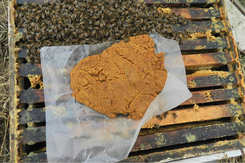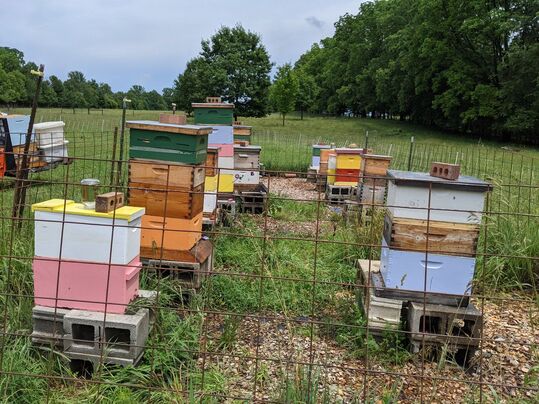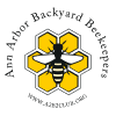 Aware As a beekeeper, it is often said that you also have to become a botanist and a meteorologist so that you not only know what is blooming in your immediate area and when it is blooming, but also to know your local weather patterns so that you are aware of situations that may prevent your bees from accessing what is in bloom. Both the plants available for your bees and weather conditions during the year are hyper localized based on a number of factors including geography and whether you are in an urban, suburban, or rural area. What is blooming in your area in early May is likely very different from what is blooming just a few miles down the road. It is important to keep this in mind to know when your colonies need to be fed. Bloom Honey bees get all of their nutrition from flowers, so when there are no plants in bloom, bees must rely on either their food stores or the beekeeper to survive. When there are no nutritional resources available in the environment, this is called a dearth. Typical times for a dearth in MI are the winter, late summer, and late fall, but there can also be a kind of dearth in the spring if the weather is too cold and wet for bees to access the blooming trees, shrubs, and plants. Concentration The 2 nutritional sources for bees are pollen and nectar. Beekeepers may need to feed either pollen, pollen substitute (a protein rich fake pollen), or pollen supplement (a protein rich substance containing some real pollen) in times when pollen is scarce but the bees are rearing a lot of brood, like in the springtime. Some beekeepers will also feed 1:1 sugar syrup as a nectar substitute in the spring until the bees stop taking it which indicates they are getting adequate nectar from the environment. Typically, 2:1 sugar syrup is fed if there is a fall dearth to help bulk up winter honey stores. Since bees will not take sugar syrup in the winter, many beekeepers put dry sugar or fondant in their hives over the winter to ensure their bees won’t starve. NOTE: Never feed sugar syrup with honey supers on. This will lead to sugar syrup “honey.” More Information: https://pollinators.msu.edu/resources/beekeepers/feeding-honey-bees/
0 Comments
Leave a Reply. |
AuthorJen Haeger is a new master beekeeper and board member of A2B2. Archives
August 2022
Categories
All
|


 RSS Feed
RSS Feed
